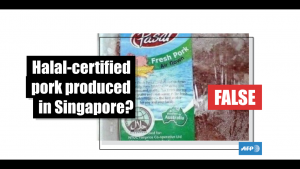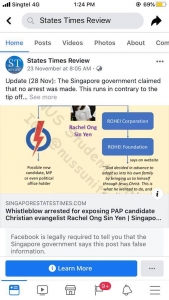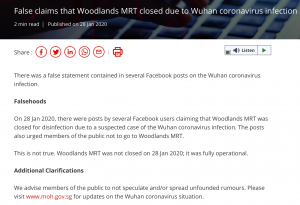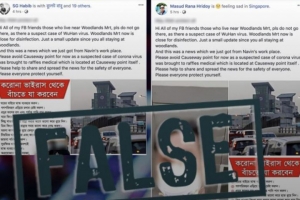On 8 May 2019, Singapore’s parliament passed a new act to regulate the spread of fake news in Singapore.
As a result, the Protection from Online Falsehoods and Manipulation Act (POFMA) came into effect on 2 October 2019.
This new act has serious implications for brands, companies and individuals who do not follow the regulation.
Breaching POFMA could result in a fine of up to $1Million and 10 years in prison.
The act covers all information shared across internet sites, social media platforms, as well as SMS/MMS and closed platforms such as WhatsApp. Individuals and companies need to be aware of POFMA and be more vigilant when posting organically or with paid support, including influencer partnerships.
Have a read below as we’ve summarised POFMA and how it could impact you and your business.
What is POFMA?
The act focuses on statements of fact, defined as ‘statements, which a reasonable person seeing, hearing or otherwise perceiving them would consider as representations of fact’ (SSO, 2019).
POFMA aims to:
- Prevent the online spread of falsehoods, which includes misleading information or false statements of fact
- Safeguard against the use of online platforms, particularly social media, for the communication of such falsehoods
What does the act forbid?
The communication of false statements of fact, from individuals/companies within and outside of Singapore that is likely to cause the following:
- Jeopardize Singapore’s security
- Be harmful to Singapore’s public health and safety
- Reduce public confidence in the government of Singapore
- Impact the outcome of elections in Singapore
- Lead to ill-will or hatred between different groups of people within Singapore
Individuals who breach POFMA will consequently pay a fine up to SG$50,000 and/or face 5 years in prison.
While organizations could face up to SG$500,000 in fines. For instances where a bot or a fake online account is set up, an offending individual will pay a fine of up to SG$100,000 and or/ face 10 years in prison while an organization will pay a fine of up to $1Million for the same offense.
The Singapore Government’s reasons to implement POFMA

To tackle growing concerns over fake news and misinformation in Singapore, including a viral case in 2007 where FairPrice was the target of fake news. A picture allegedly of ‘halal pork’ sold in the store went viral. The supermarket had to submit a police report and communicate this was a falsehood. Another case in 2016 saw a false report of a collapsed roof at Punggol Waterway Terraces causing anxiety and distress amongst residents.
Breaching POFMA
If breached, the law grants the government ministers to issue ‘correction notices’ to a company or individual.
This could include:
- Correction – the individual that communicated the falsehood must post a notice stating the statement was false and/or correct the falsehood
- Stop Communication – the individual will need to remove the falsehood and ensure no one can access the information
- Targeted Correction – the internet platforms with the falsehood posted will communicate a correction notice
- Disabling Direction – the internet platforms e.g. Singtel, will need to remove the falsehood and disable all access by Singapore end-users
- General Correction – internet platforms and media organizations must publish a correction notice via their portals e.g. newspaper, transmission, etc.
- Account Restriction – Online platforms must shut down fake online accounts, such as bots
Finally, even if the recipients object to the claim of falsehood, the correction directives must be actioned immediately. The High Court can invalidate A POFMA order but to date, this has not happened.
Facebook’s interactions with POFMA
Facebook is legally required by POFMA to issue a disclaimer on its users’ posts, which are edited to read ‘determined by the Singapore government to contain false information.’ Although Facebook has communicated its concern around the law and ‘free expression’, it has already issued several disclaimers.
In November 2019, Facebook issued this disclaimer on a post by the online news forum, The States Times Review because the company refused to edit a post about the Minister for Home Affairs and Law.
On the 28th of January 2020, Facebook issued the POFMA correction directive after 2 users claimed that Woodlands MRT was closed due to a suspected case of the Wuhan Coronavirus. Consequently, the government also advised members of the public not to speculate or spread fake news.
Find out more about the POFMA Act:
For more information on POFMA and how to make sure your organizations and individuals are aligned with the act, visit the POFMA Office.
We have opened a new office in Singapore, contact us!




